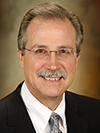What we previously thought about learning has been rewritten
 by Jed Delmore, MD
by Jed Delmore, MD
“When I was your age …” Who hasn’t heard that phrase, which produces audible eye rolling?
I suspect that regardless of profession or occupation, all parents, educators, employers or senior partners have offered that unsolicited observation. Most commonly it is used to denigrate or minimize the recipient’s performance, expectations or experience.
At various times I have felt the urge to explain that in years past gasoline was 27 cents a gallon, dancing was a contact sport, four-minute guitar solos were expected, pants were intentionally kept at waist level with a belt, and sentences were not prefaced with “like.”
Times change, but the urge to share your own past experience seems universal, if not a bit rose-tinted.
My personal experience in the medical profession is best measured by advances in technology. As a college student at Texas A&M in 1969, while taking quantitative analysis, slide rules (look it up) were a requirement.
That changed mid-semester when a student whose father was an engineer at Texas Instrument brought a hand-held calculator to class. All the chemistry professors had to meet and agree that it was acceptable to use that new thing instead of a slide rule. Now, all our students have more calculating power in their cell phones than anything we could have imagined.
A literature search required going to the library, requesting help from the librarian, reviewing the printout, and then requesting actual reprints of articles. Now you can sit at home in your underwear (or while making rounds with your underwear covered up), search multiple databases through the university library and have immediate access to the latest publications.
From a technical aspect, what we previously considered essential for learning our trade, learning to succeed, or learning life’s lessons has been rewritten. A world of information is available to our students, our children and those we will depend on as we age.
Fear not, there is still a roll for us to impart the soft knowledge and interpersonal skills needed for the next generation to succeed and to lead.
The next time I’m working with a student or resident and I start with “when I was your age,” it should be followed by “I wasn’t as smart, worldly, environmentally conscious and unbiased as you.”
It turns out I am proud to have become my dad. I don’t miss pocket protectors, typewriters or sitting on the floor in the hallway to use the only telephone in the house. However, I do miss fourminute guitar solos.
This is my last newsletter as MSSC president, and I want to express my appreciation for the opportunity to represent the Medical Society. Working with MSSC executive director Phillip Brownlee and assistant Denise Phillips and the entire MSSC board of directors has been a pleasure.
During the past year, we have tried to expand the opportunities for different educational and social events at different venues. In an effort to involve the younger members of the medical society, we started the WD40 meetings, loosely targeting physicians younger than 40 years of age.
The Medical Society is fiscally sound and remains as relevant today as it ever was. Please consider attending the annual meeting on Tuesday, Dec. 4, where our guest speaker will be Dr. Douglas Girod, MD, chancellor of the University of Kansas. It also will feature an excellent wine auction to benefit Project Access. I hope to see you there.


